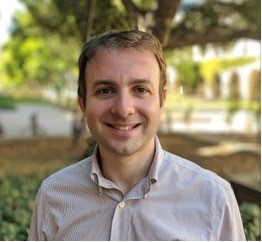Date: Tuesday 7 March 2023 - 16:00 (Europe/London)
Speaker: Zachary E. Ross, William H. Hurt Scholar and Assistant Professor of Geophysics at the Seismological Laboratory of the California Institute of Technology
Abstract
Seismic waveform modeling is a powerful tool for determining earth structure models and unraveling earthquake rupture processes, but it is computationally expensive. We introduce a scheme to vastly accelerate these calculations with a recently developed machine learning paradigm called the neural operator. Once trained, these models can simulate a full wavefield for arbitrary velocity models at negligible cost. We use a U-shaped neural operator to learn a general solution operator to the elastodynamic wave equations from an ensemble of numerical simulations performed with random velocity models and source locations. We show that full waveform modeling with neural operators is nearly two orders of magnitude faster than conventional numerical methods, and more importantly, the trained model enables accurate simulation for arbitrary velocity models, source locations, and mesh discretization, even when distinctly different from the training dataset. The method also enables efficient full-waveform inversion with automatic differentiation.
The talk is now available on YouTube: https://youtu.be/pX_qE0GzNWY

Biography
Zachary Ross is a William H. Hurt Scholar and Assistant Professor of Geophysics at the Seismological Laboratory of the California Institute of Technology. He earned his Ph.D in Geophysics from the University of Southern California and then was a Postdoctoral Scholar in Geophysics at the California Institute of Technology. His research program aims to improve our understanding of earthquakes, fault zones, and volcanoes by incorporating recent technology from machine learning and applied and computational mathematics. For his research contributions, he has received several awards and honours including the Keiiti Aki Early Career Award from AGU, David and Lucile Packard Fellowship for Science and Engineering, National Science Foundation CAREER award, and Kavli Fellowship from the US National Academy of Sciences.
